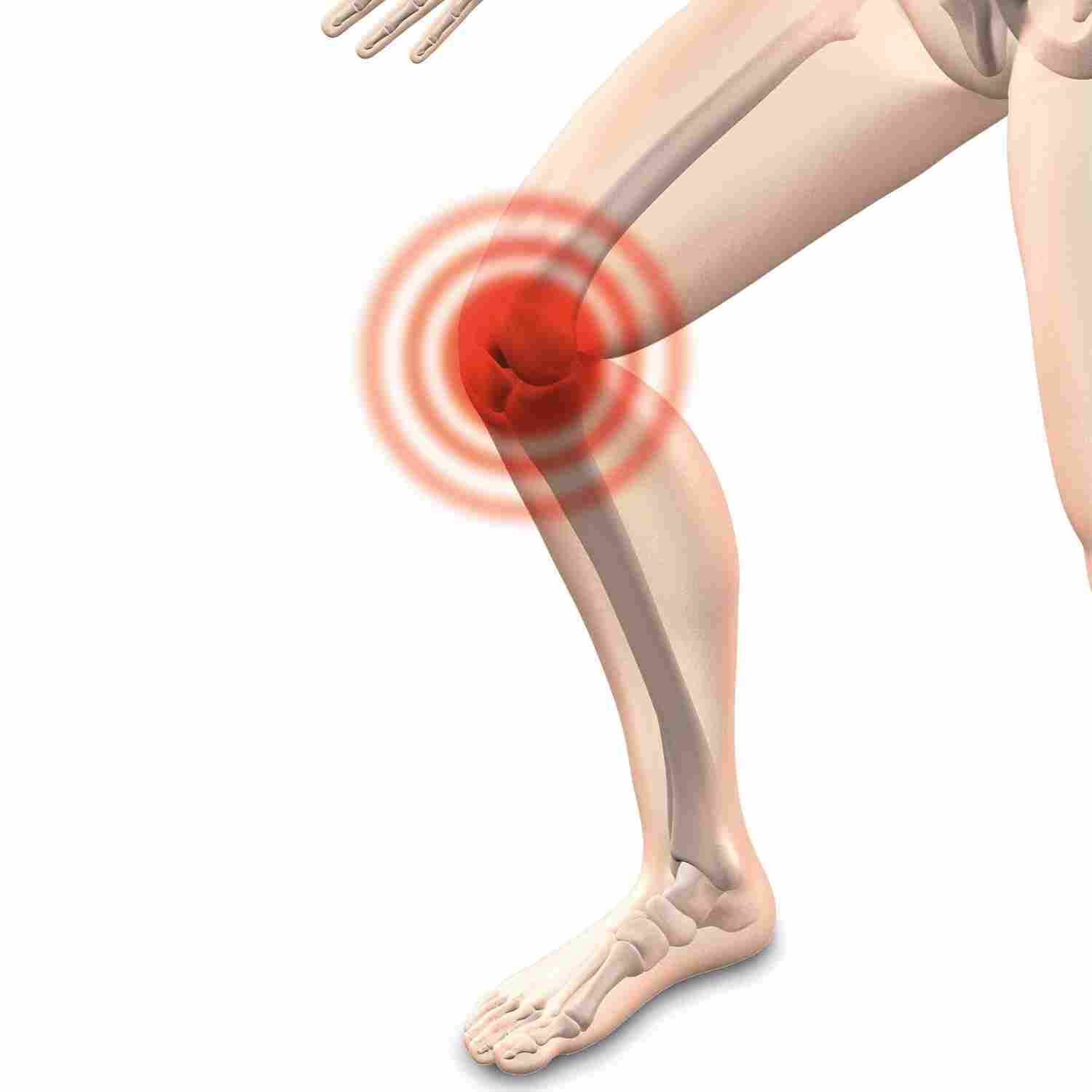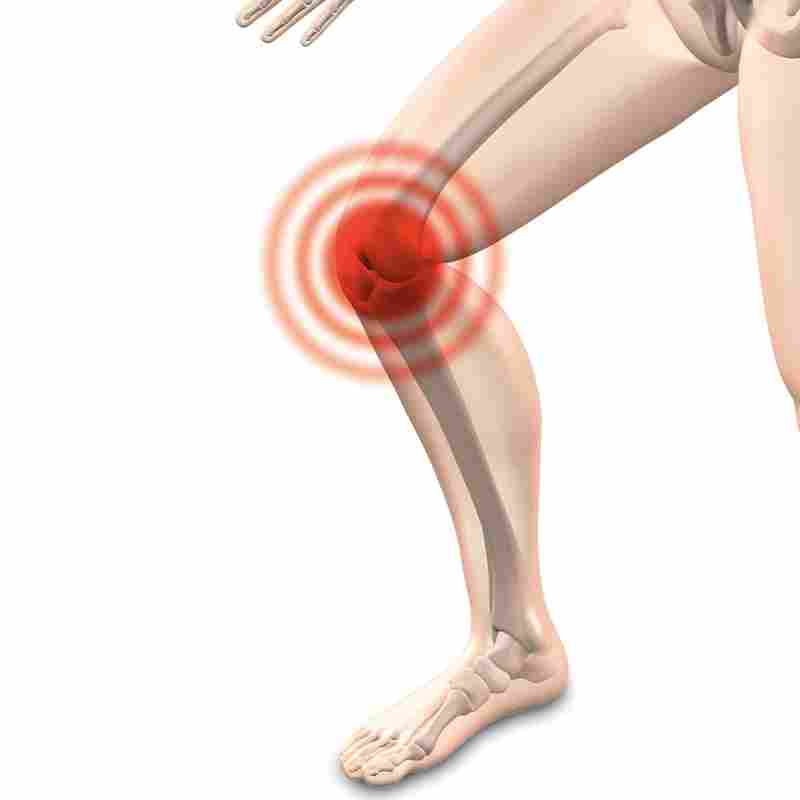
- 2020-11-08
- 0.0 Reitingas
- 554 Peržiūros
- Aptarti
A new study presented at ACR Convergence, the American College of Rheumatology's annual meeting, shows that after three months of treatment with oral methotrexate, adults with primary knee osteoarthritis (OA) with inflammation had significant improvements in physical function and inflammation, a sign that this inexpensive, generic pill may be an important intervention for knee OA (ABSTRACT #1648).
OA is a common joint disease that most often affects middle age to older people. It is commonly referred to as "wear and tear" of the joints, but it is now known that OA is a disease of the entire joint, involving the cartilage, joint lining, ligaments, and bone.
Many people with knee OA show clinical signs of joint inflammation, including swelling, warmth and pain. Although inflammation may play a major role in pain and loss of function and progressive damage in joints with OA, there are no current, accepted drug therapies to address the condition in these patients. This study, which was conducted by researchers at SSKM Hospital in Kolkata, India, compared oral methotrexate to placebo treatment with glucosamine, a common supplement for arthritis pain relief, in adults with primary knee OA.
"Almost all patients with primary knee OA experience periods of warmth and swelling in the joint, with increases in pain and reduction of function," says the study's co-author, Biswadip Ghosh, MD, associate professor, Department of Rheumatology, at Institute of Post Graduate Medical Education and Research in Kolkata, India. "Those episodes are inflammation, and every episode damages the structures of the knees a little more. After some time, swelling subsides partly due to burning out of materials. That leaves the knee in a hopeless state of function loss where physiotherapy helps minimally with enlistment for knee replacement. It will be helpful for patients if we can decrease the inflammation and rescue the joint," says Dr. Ghosh.
Male and female patients with primary knee OA who had swelling and pain in both knee joints for at least six months, and also had evidence of OA on their X-rays, were recruited for the study. Researchers excluded anyone with advanced OA or secondary OA; anyone who had undergone arthroscopy (a procedure for diagnosing and treating joint problems) ; intra-articular steroid injection in the previous three months; or patients who had uncontrolled diabetes, renal or hepatic diseases, or gout.
Patients with signs of local inflammation, such as pain and swelling of the whole knee with warmth, were checked for erythrocyte sedimentation rate and C-reactive protein blood levels. Any patient with increases in both inflammatory markers on one exam or either on two exams held one month apart was placed in an inflammatory group in the study. Other patients were placed in a non-inflammatory group.
Blood samples collected from all the patients and healthy controls were tested for selected biomarkers of osteoarthritis. Patients in the inflammatory group of primary knee OA were screened for other inflammatory arthritis with a clinical exam, blood tests, musculoskeletal ultrasound and X-ray, as well as MRI scans of their knees. Patients in the inflammatory group were then randomly allocated to take 15-20 mg/week of oral methotrexate or 1,500 mg/day of glucosamine as a placebo, then checked once a month for three months. Patients were allowed to take acetaminophen or tramadol for pain if needed and were also given NSAIDs for 7-10 days at the beginning of the study to improve compliance.
A total of 344 people with primary knee OA were included and examined from July 2016 to June 2019. The researchers found that 249 patients had local inflammation, or swelling with pain and warmth in both knees, and 172 of those 249 had elevated erythrocyte sedimentation rate and/or C-reactive protein, both markers at one exam or either marker at two exams held at one month apart. The study's results showed that patients with primary knee OA with evidence of inflammation had significant improvements on their WOMAC scores, a widely used measurement of physical function, and erythrocyte sedimentation rate and C-reactive protein after three months of taking oral methotrexate. Patients who took glucosamine had no significant improvement in these measures of function and inflammation. This new data suggests that methotrexate can be an effective intervention for people with knee OA who experience pain and inflammation.
"Treatments offered to patients with primary knee OA are usually physical support and knee replacement, which are basically directed to manage the effect of the disease. Our study provides hope to patients not only from this inexpensive molecule, methotrexate, but other therapies directed towards one cause of the disease: inflammation," says Dr. Ghosh. "We should think of using methotrexate if we find signs of both local and systemic inflammation in patients with primary knee OA when conventional therapies are not helpful. Additionally, more research should be directed towards the inflammatory pathways of the disease in the future."
- by American College of Rheumatology
- Credit: CC0 Public Domain
...kadangi jau perskaitėte šį straipsnį iki pabaigos, prašome Jus prisidėti prie šio darbo. Skaitykite „Paranormal.lt“ ir toliau, skirdami kad ir nedidelę paramos sumą. Paremti galite Paypal arba SMS. Kaip tai padaryti? Iš anksto dėkojame už paramą! Nepamirškite pasidalinti patikusiais tekstais su savo draugais ir pažįstamais.
Turite savo nuomone, tapk autoriumi, prisijunk ir rašykite bloge. Dalinkitės receptais, sveikatos patarimais, nutikimais, susidūrėte su nekasdieniškais reiškiniais. Galite išversti iš užsienio kalbos, talpinkite su nuoroda. Laukiame Jūsų straipsnių, naujienų, apžvalgų ar istorijų!
Susijusios naujienos
Būkite pirmi, kurie pasidalins savo nuomonėmis su kitais.
Skaityti daugiau
Skaityti daugiau
Skaityti daugiau
Skaityti daugiau
Skaityti daugiau
Skaityti daugiau
Skaityti daugiau
Skaityti daugiau

